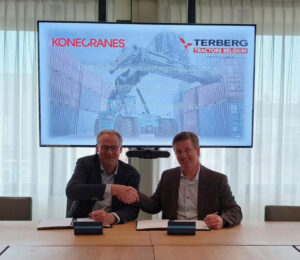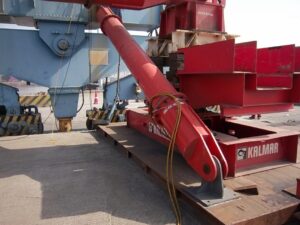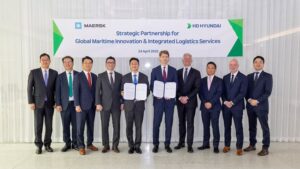Kalmar has provided insight into whether the terminal of the future will need humans in its Port 2060 blog, featuring its Vice President of Market Intelligence, Strategy and Development, Frank Kho.
Kho (pictured below) has stated that although a “zero-accident port is definitely a mission possible”, terminals will always need to be supervised.
He added that humanless terminals would become reality if shipping became completely standardized, with terminals becoming production lines.
But this is something that Kho believes won't be realized as automation enables both machines and humans “to concentrate on what they are good at”, with human intelligence ruling over robots in terms of planning, innovation, and perception.
View Kalmar Global in PTI's Supplier Directory
Kalmar stated in the blog post that humans will work with “intelligent robots” and other automated equipment to improve safety and reduce the number of lost working hours, equipment damage costs, and insurance premiums.
But the company stressed that machines cannot be programmed for unexpected events such bad storms causing cargo to shift at sea and containers to leak.
It added that terminal operations such as specialized handling, lifting equipment, and special storage facilities will also always need a human touch.
But Kalmar warned that for a terminal to achieve such an advanced stage in automation, it would need the appropriate planning, training and “continuous open communication with employees, trade unions, and other stakeholders”.
This, Kalmar added, means that managers and owners will need to have “a whole new set of skills and change of mindset” for everyone working at a terminal.
Kho concluded: “Large terminal areas can already function completely unmanned. But they can never be entirely staffless. Human intervention is crucial.
“Safety benefits of automation are undisputed. To embrace the change, staff must be involved early to understand why the change is needed.”









